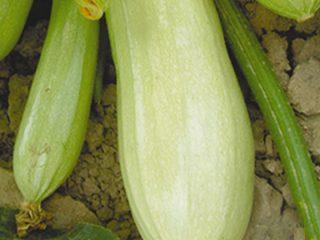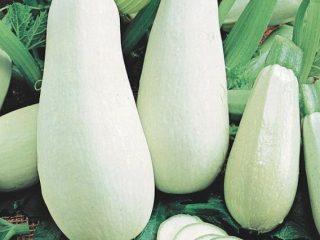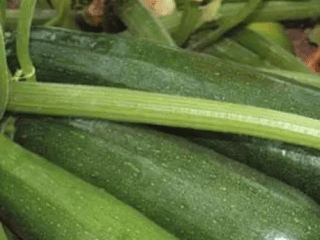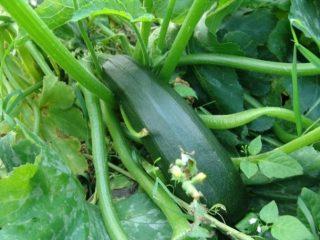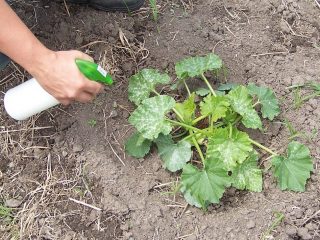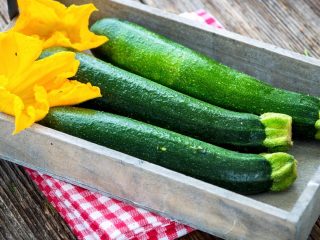Content
Inexperienced gardeners may encounter various problems, one of which is the lack of ovaries in zucchini. Bushes, as a rule, may not produce fruit when growing in open ground, but sometimes this phenomenon can be observed in greenhouse conditions. There are several reasons why zucchini is barren, and by studying these, you can try to correct the situation and subsequently get a good harvest.
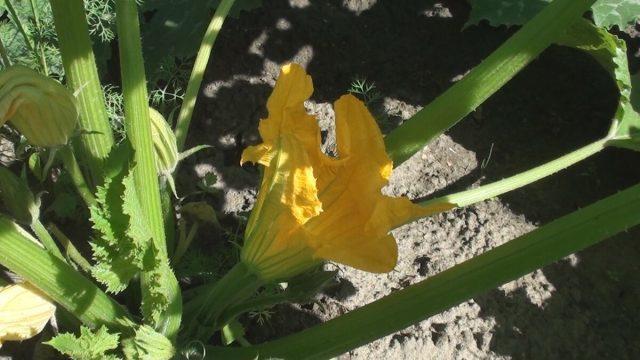
The main reason for empty flowers on zucchini is improper care.
How to identify barren flower
Zucchini belongs to the pumpkin crop, which has unisexual flowers (staminate and pistillate). It is through cross-pollination that fruit sets occur. Many inexperienced gardeners mistakenly consider male flowers to be barren flowers and remove them, which leads to the cessation of pollination. This is not recommended, since with proper care, more female flowers are formed on the bush.
It is not difficult to determine the presence of female flowers on a bush; at their base you can see the rudiment of the future fruit.After pollination, the ovary begins to develop, and the flower fades. Male flowers initially lack this rudiment; as a rule, they have a longer pedicel.
Why don't zucchini set in open ground?
There may be several reasons why zucchini blooms as a barren flower. The main ones include poor-quality planting material, poor soil preparation and improper care. The formation of ovaries is also influenced by the plant’s immunity, its resistance to diseases and pests, since damage to zucchini by any disease directly affects the quality and quantity of the harvest.
Poor quality seeds
The germination and immunity of the future plant depend on the quality of planting material. And, if you use seeds of questionable quality, then in the event of germination, the zucchini seedlings may develop incorrectly, which will lead to a lack of ovaries in the future.
The seeds must be of high quality, dry and not deformed, stored in suitable conditions for at least a year and no more than three years. If they were damaged or too fresh (picked from the previous harvest), then the squash bushes grown from them will form more male flowers.
Diseases and pests
One of the reasons for the formation of barren flowers on zucchini is the plant being damaged by diseases and pests. In this case, immunity is greatly reduced, which leads to a weakening of the plant, and it begins to spend more energy on maintaining viability rather than on forming fruits. Therefore, predominantly male flowers without primordia appear on the zucchini bush.
Among the dangerous crop diseases, mosaic, powdery mildew, and white rot should be noted.
The most common pests that attack zucchini are the melon aphid and the sprout fly.
To prevent the occurrence of diseases, preventive measures are required at the time of planting and during the period of active growth. It is also important to comply with all care standards.
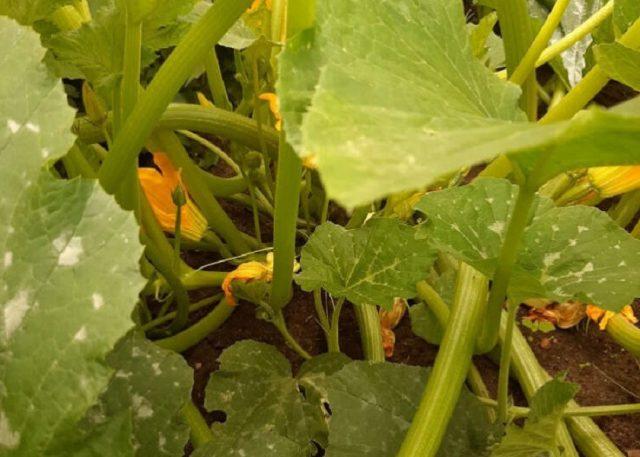
When affected by mosaic, squash bushes are dug up and burned, as the disease is incurable
Weather
Unfavorable weather conditions are also considered the main reason why there are no ovaries on zucchini. For example, if the summer turned out to be rainy, then you should not expect a large harvest. This happens because moisture causes pollen to clump together, and cross-pollination does not occur. Also, in cold, damp weather, insects practically do not appear near the plantings.
Sultry heat also has a detrimental effect. Due to the large amount of sunlight hitting squash bushes, pollen sterilization can occur. This can be prevented by installing a canopy over the garden bed. Shading will have a beneficial effect on the plantings; it will not only prevent pollen spoilage, but also protect the plants from sunburn.
Landing location
Despite the fact that zucchini is an unpretentious crop, the wrong choice of planting location directly affects the amount of harvest. The plant prefers slightly acidic, nutritious soil. It is better to place the garden bed in a well-lit place without draft winds. The presence of strong shading and the close location of groundwater will cause the zucchini plants to become dominated by barren flowers and the leaves will begin to turn yellow.
Improper care
Improper care is one of the main reasons why zucchini plants fail to set not only in open ground, but even in a greenhouse. With insufficient experience, young gardeners can make the following mistakes:
- waterlogging of the soil - this occurs due to frequent watering on clay soil, and stagnation of water provokes the appearance of rot;
- frequent planting - if plants are planted close to each other, they will begin to compete with each other, spending a significant amount of energy;
- improper feeding - the use of large quantities of nitrogen-containing compounds will promote the formation of green mass, rather than the formation of ovaries.
Watering should be done when the top layers of the soil dry out. The soil should be moist, but not damp (watery), otherwise the root system will begin to rot.
Lack of insects for pollination
Zucchini plants do not set and form only barren flowers when there are no pollinating insects. It is thanks to them that cross-pollination occurs. In the case when pollen does not fall on the female flowers, they simply dry out without forming fruits.
The lack of insects on the site may be the result of unfavorable weather conditions or the lack of nearby honey-bearing plants. To attract pollinators, experienced gardeners advise planting bright-smelling bushes (mint, poppy, rudbeckia) in vacant areas. Baiting with sweet syrup (honey water) often helps.
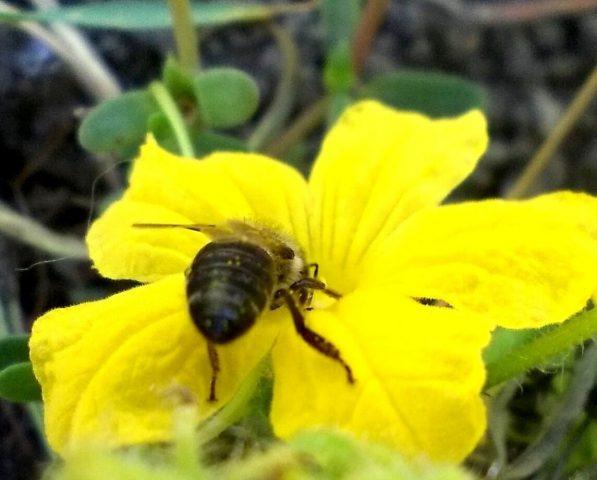
An effective method of attracting pollinating insects is to spray zucchini with sweet water.
Is it necessary to pick off empty flowers from zucchini?
It is not recommended to pick empty flowers from zucchini, since the lifespan of male flowers is short. They develop quickly, wither and fall off, so they do not take much strength and energy from the plant. But by cutting off barren flowers, you can not only prevent cross-pollination of flowers, but also significantly harm the zucchini bushes. Pathogenic bacteria or other infections can get into the places where flower stalks are cut.
What to do if zucchini blooms but the ovaries do not
If it is discovered in time that zucchini blooms profusely in the garden, but does not bear fruit, the situation should be corrected immediately. The following actions may help in this case:
- regular feeding with complex fertilizers with a minimum nitrogen content (potassium-phosphorus compounds can be used);
- spraying zucchini with a solution of boric acid (it is advisable to treat the inflorescences with the composition);
- creating bait for pollinating insects (spraying with sweet syrup);
- Regular watering with special preparations Effecton, Biosporin - this helps strengthen the plant’s immunity.
Preventive measures
Preventing the formation of ovaries makes it easier to combat barren flowers on zucchini. It should begin before planting the plants in the garden. It lies in the correct selection and preparation of planting material and location. It is best to purchase seeds from a specialized store, and if you use your own seed, it must be aged for at least a year.Old ones that are more than three years old should also not be used, since their germination will be unlikely.
The soil for the future bed is dug up and fertilized as necessary. Planting is carried out according to a 60 by 60 cm scheme; you can maintain a greater distance, but in no case bring them closer together.
After the emergence of seedlings, it is necessary to water the zucchini with an infusion of onion peels. Ash is also added to the soil. An excellent preventive measure is the timely removal of weeds and loosening the soil around the bushes.
To ensure a stable harvest, it is important to observe crop rotation. Constantly planting zucchini in the same place over time will give worse fruiting results, and more and more barren flowers will appear on the bushes. The reason for this will be soil depletion.
At the beginning of the growing season, zucchini can be fed with nitrogen complexes, and at the time of flowering, fertilizers can be changed to those that contain more potassium and phosphorus. With an excess of nitrogen, the bushes will begin to grow and form more male flowers. In this case, experienced gardeners advise pinching the growing point.
Conclusion
In zucchini, barren flowers may indicate improper care of the crop. It is very easy to find out about the appearance of a large number of male flowers on a bush, and if you notice the problem in time, it will be easy to deal with it. And timely help to the plant will allow you to get a bountiful harvest of high-quality fruits in the future.

